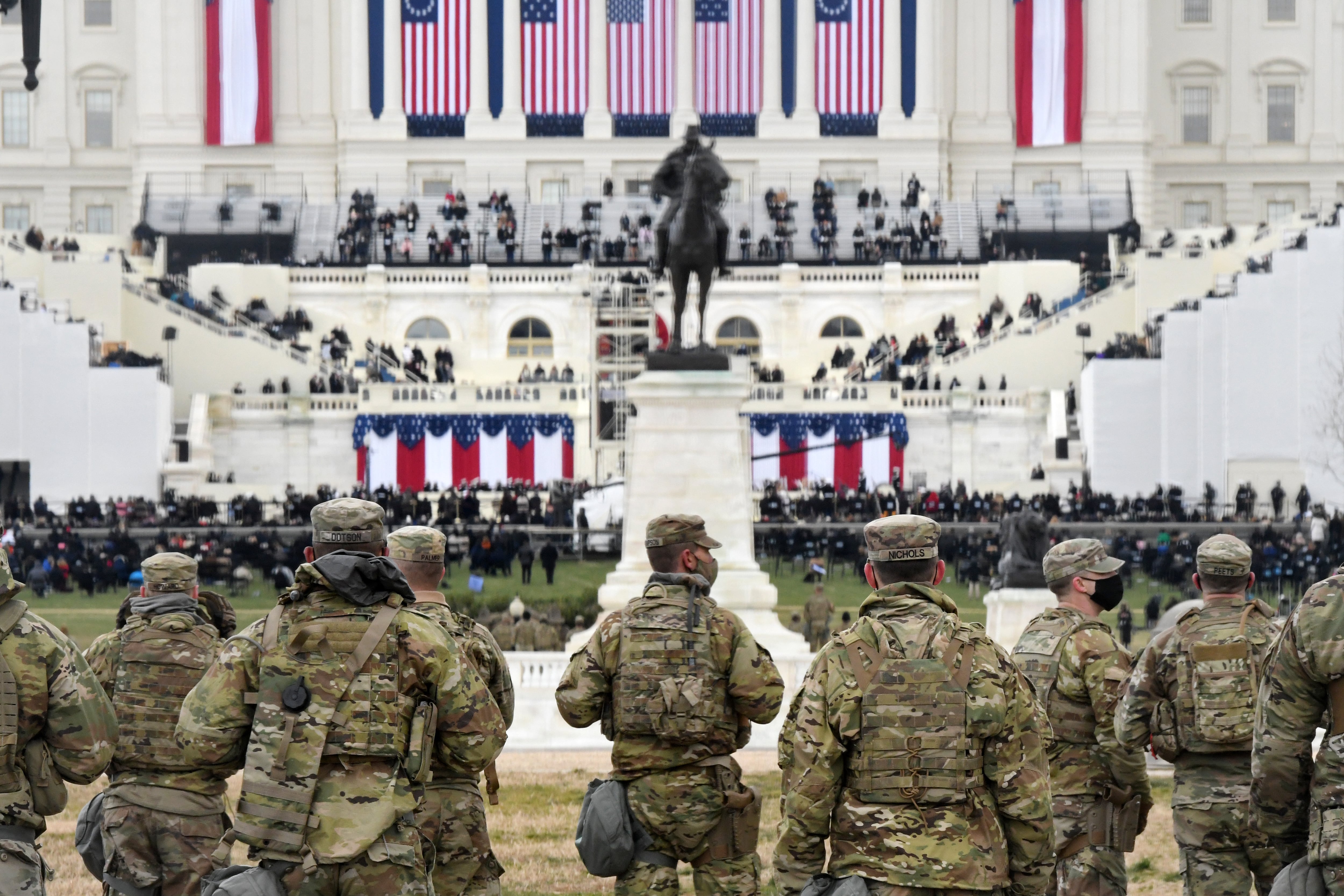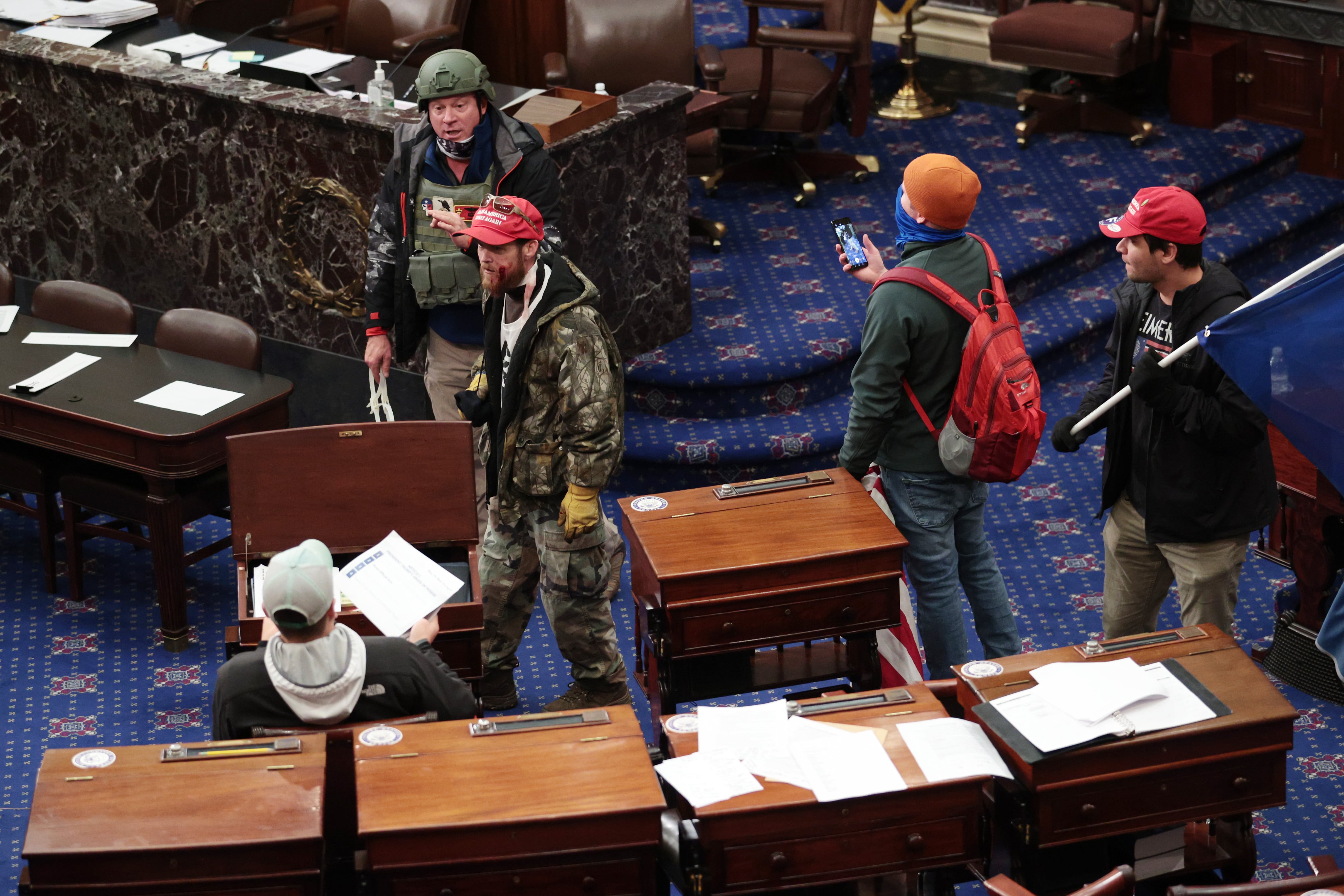The task force charged with reviewing Capitol Hill security in the wake of the deadly Jan. 6 attack on Congress has proposed among its reforms launching a permanent military police battalion staffed by rotating Guard and reserve troops to help provide “quick reaction” support in case of future violence.
“Our national capital is a prominent tourist destination, venue for many peaceful First Amendment activities, and a high-value target for foreign terrorists or domestic extremists,” the report states. “Yet it has no dedicated quick reaction force for response to crises.”
The security review — led by retired Army Lt. Gen. Russel Honoré, best known for directing military relief efforts in the wake of Hurricane Katrina in 2005 — also calls for allowing leaders from the District of Columbia National Guard to respond directly to requests for help from Capitol Hill police, rather than wait for Defense Department approval.
RELATED

That issue came under public scrutiny last week when Maj. Gen. William Walker, commander of the District of Columbia National Guard, testified that he had to wait more than three hours for Defense Department leaders to authorize the deployment of his troops to respond to the Jan. 6 attack.
“(We) could have made a difference,” he told senators.
Hundreds of supporters of former President Donald Trump forced their way into the Capitol building on Jan. 6 in an attempt to disrupt certification of last November’s presidential election results. Five people died as a result of the violence, including Capitol Hill police officer Brian Sicknick.
In the following weeks almost 26,000 National Guard troops were mobilized to provide security before and after the Jan. 20 inauguration of President Joe Biden. As of last week, about 5,200 remained on site.
The report, compiled after six-weeks of investigation, found numerous shortcomings in the Capitol complex’s security situation, including insufficient law enforcement personnel to adequately protect the several hundred acres under their watch.
The report recommends new “mobile fencing options” to help secure the site, additional security for members while traveling to and from Washington, D.C., and reinforcing a host of potential entry points into the Capitol building to prevent the crowd invasion seen earlier this year.
Authors noted that the mobilized National Guard forces that currently supplement Capitol Police efforts are “temporarily sufficient, but not a permanent solution” to the security challenges.
On the issue of a National Guard quick reaction force, the report suggests creating one by “mobilizing military police from Guard elements across the United States on rotations of three to six months” or staffing it with “active Guard/Reserve troops who live in or near the city year-round.”
RELATED

District of Columbia Guard officials would be charged with leading the effort in either of those options. The report also suggests Congress could create its own, free-standing security force in lieu of a military team.
The security review team also recommends the Department of Homeland Security develop an overarching security plan for the entire national Capitol region, to better respond to any threats against government buildings in the area.
“The collective planning effort would be key to developing a shared understanding for any response effort and better enable unity of effort,” the report states. “This plan should be exercised quarterly through table-top exercises and reinforced in daily operations.”
House officials have said they will review the report in coming days to decide next steps for better securing Congress.
Leo covers Congress, Veterans Affairs and the White House for Military Times. He has covered Washington, D.C. since 2004, focusing on military personnel and veterans policies. His work has earned numerous honors, including a 2009 Polk award, a 2010 National Headliner Award, the IAVA Leadership in Journalism award and the VFW News Media award.









